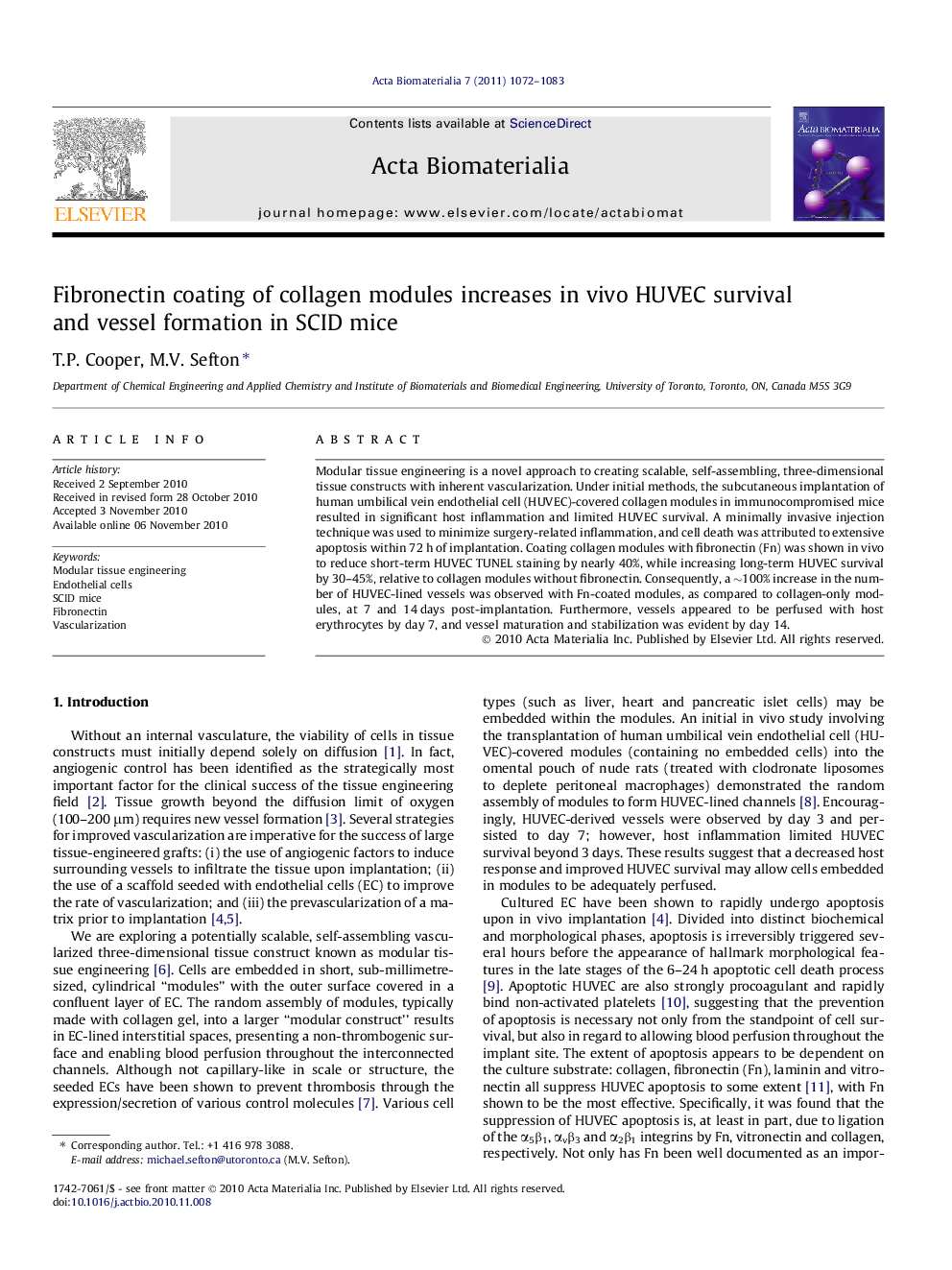| Article ID | Journal | Published Year | Pages | File Type |
|---|---|---|---|---|
| 10160164 | Acta Biomaterialia | 2011 | 12 Pages |
Abstract
Modular tissue engineering is a novel approach to creating scalable, self-assembling, three-dimensional tissue constructs with inherent vascularization. Under initial methods, the subcutaneous implantation of human umbilical vein endothelial cell (HUVEC)-covered collagen modules in immunocompromised mice resulted in significant host inflammation and limited HUVEC survival. A minimally invasive injection technique was used to minimize surgery-related inflammation, and cell death was attributed to extensive apoptosis within 72Â h of implantation. Coating collagen modules with fibronectin (Fn) was shown in vivo to reduce short-term HUVEC TUNEL staining by nearly 40%, while increasing long-term HUVEC survival by 30-45%, relative to collagen modules without fibronectin. Consequently, a â¼100% increase in the number of HUVEC-lined vessels was observed with Fn-coated modules, as compared to collagen-only modules, at 7 and 14Â days post-implantation. Furthermore, vessels appeared to be perfused with host erythrocytes by day 7, and vessel maturation and stabilization was evident by day 14.
Related Topics
Physical Sciences and Engineering
Chemical Engineering
Bioengineering
Authors
T.P. Cooper, M.V. Sefton,
